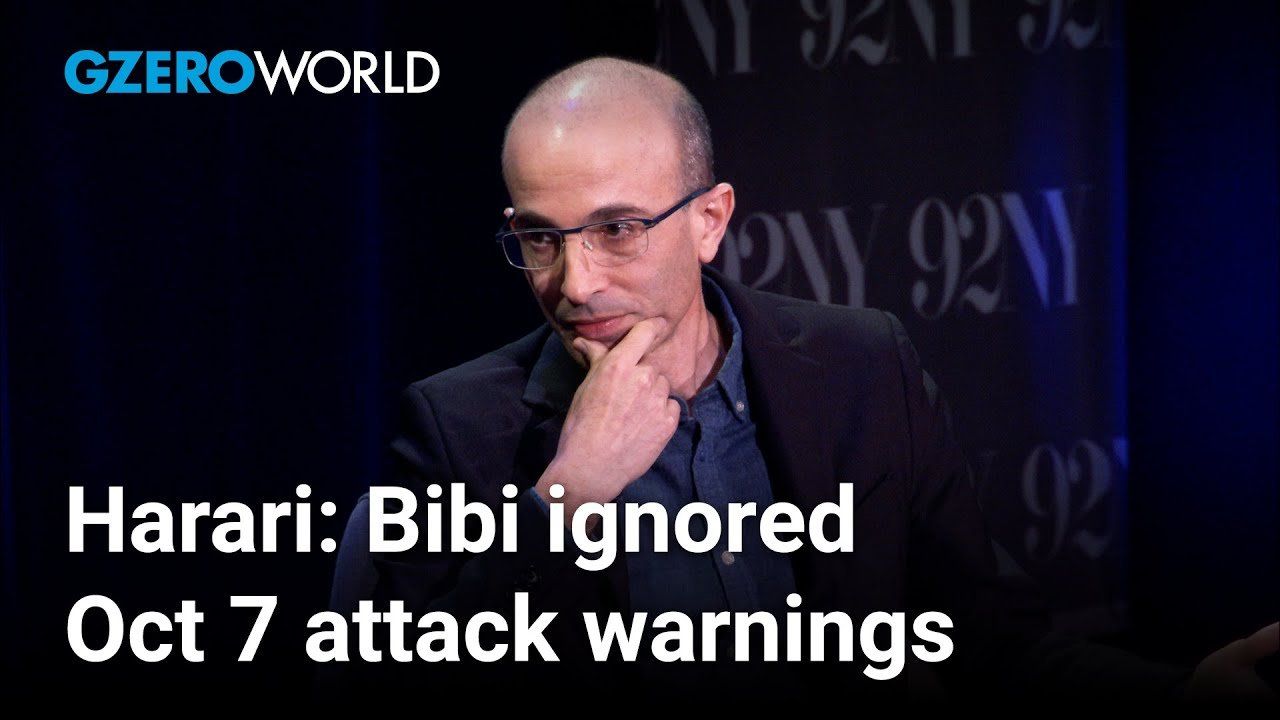GZERO World Clips
Yuval Noah Harari: Netanyahu's 'Deep State' fears enabled Oct 7 attack

Yuval Noah Harari: Netanyahu's 'Deep State' fears enabled Oct 7 attack | Ian Bremmer | GZERO World

Author and historian Yuval Noah Harari believes that the Israeli government's policies under Prime Minister Benjamin Netanyahu allowed for Hamas’ Oct 7 attack to be as deadly as it was. He points specifically to Netanyahu's efforts to undermine the judiciary and other democratic institutions.
“He was trying to systematically destroy the institutions of Israeli democracy,” Harari tells Ian Bremmer in a live interview at the 92nd Street Y in New York City. He links these domestic political maneuvers to the failure to heed warnings from military and intelligence services about external threats leading up to October 7, arguing that this negligence was influenced by conspiracy theories about a so-called “deep state.”
The problem, Harari says, goes deeper than Netanyahu. He talks about the ideological infighting within the Israeli government as a battle for the country's soul and for Judaism itself. He contrasts the principles of Zionism with those of a rising messianic movement that espouses Jewish supremacy, warning of the dire implications should this faction's vision of a deeply stratified society. “This will change the very meaning of Judaism all over the world.”
So what kind of outcome could both Israelis and Palestinians live with? Harari advocates for defending Israel's right to exist while also ensuring Palestinian rights. He rejects the notion that these positions are mutually exclusive, arguing for a future where both Israelis and Palestinians can live dignified lives within their homelands. “Just because you are in favor of the rights of Palestinians doesn’t mean you have to be also in favor of destroying Israel completely.”
Somewhere in the Donbas region, Ukrainian soldier Artem Bondarenko says he hasn’t slept through the night in months as he defends Eastern Ukraine.
In this Quick Take, Ian Bremmer warns that US military strikes on Iran are “looking increasingly imminent” as diplomacy appears to stall.